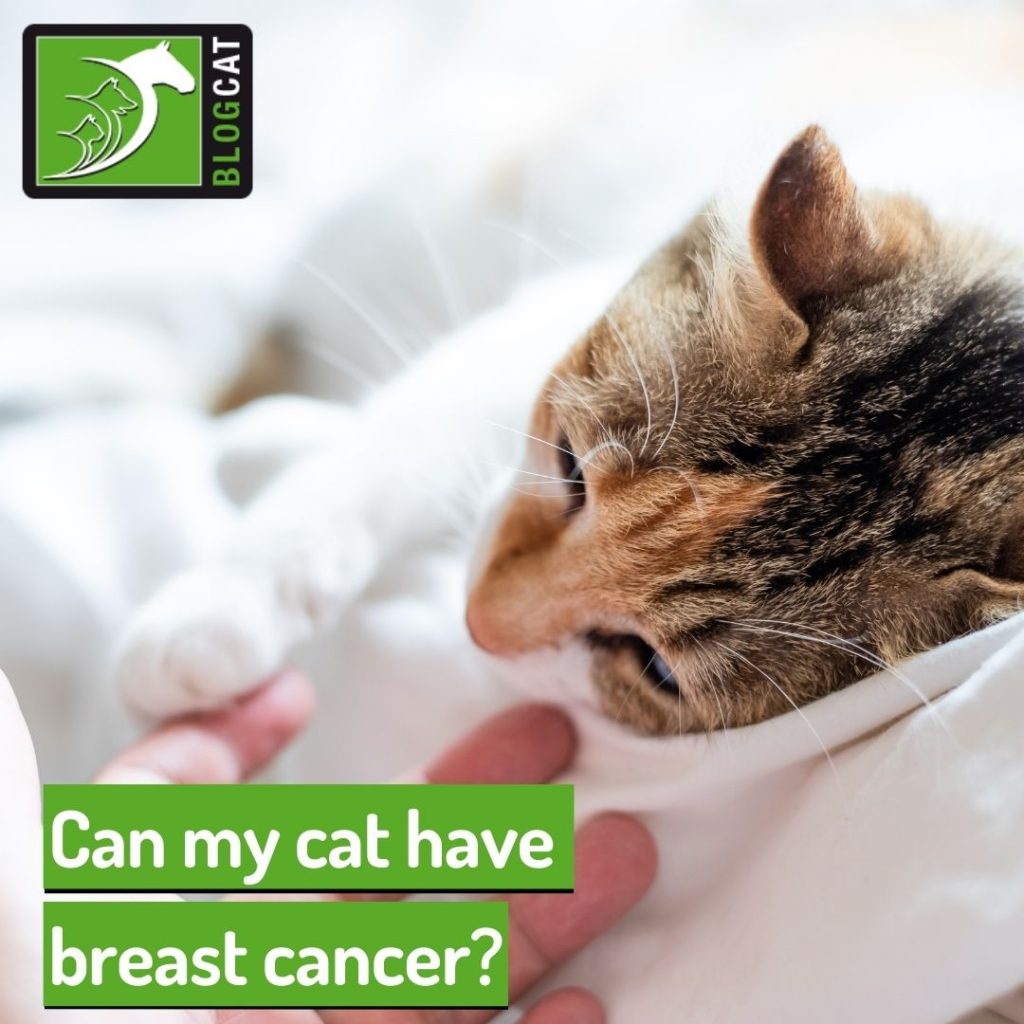
Can my cat have breast cancer?

Did you know that feline mammary cancer is one of the most common cancers in cats over the age of 10? Mammary tumours are common in domestic cats, and most of them are malignant, meaning they can grow and spread to other organs like the lungs, liver or kidneys.
Unfortunately, most of these will be fatal without treatment, so keeping a close eye on your cat is essential! The sooner treatment starts, the better the chances of him or her being treated without more significant consequences.
Learn more about this common type of cancer below and help your pets live long happy lives!
What is breast cancer?
Breast cancer is a malignant form of a mammary tumour, and it arises from an out-of-control proliferation of the cells of normal tissues of the mammary gland. As these cells multiply and change, the body cannot stop this process, which means they will invade the space around them and do the same in distant organs like the lymph nodes, lungs, liver or kidneys.
In cats, most of these cancers affect females, and as we mentioned, the vast majority of these tumours are serious problems that can be deadly if not caught in time.
One of the first signs is usually a small, non-painful lump near the mammary glands on the skin of your cat's abdomen, and it may progress to:
- Less energy;
- Less appetite;
- Losing weight without any other reason;
- The lump getting bigger and spreading;
- Other nodes appearing nearby on the mammary glands;
- Painful skin ulcers if the mass (or masses) is/are big enough.
Male cats can also have breast cancer, so if you spot a lump on your cat (regardless of gender), have a chat with your vet without delay!
Can my cat's mammary tumour be treated?
When your vet finds something that is concerning, he or she will collect the needed samples and ask for other exams such as blood exams, X-rays, a CT scan or abdominal ultrasound in order to diagnose the type of cancer and its stage of development.
As soon as cancer is confirmed, your vet is likely to suggest surgery to remove the tumour and, depending on the severity of the problem and the likelihood the cancer has spread to other places, chemotherapy.
How this disease will progress depends on how early it is detected and it carries the best prognosis if the lump is less than 2cm and has not invaded any other places like the lymph nodes or blood vessels.
If caught in time, your cat will most likely have a good chance of survival with treatment!
How can I help prevent this disease?
While we still don't know exactly what causes mammary tumours in cats, we do know that unneutered females are more likely to have these types of cancer due to the hormonal environment in their bodies.
To help reduce the chances of breast cancer, vets recommend that you neuter your cat before her first heat cycle in order to remove the chances of hormones causing the development of tumours.
In addition to this, keep an eye on your cat's mammary glands and feel the area regularly. If you spot anything that feels unusual, like a lump or a skin ulcer, don't delay - talk to your vet as soon as possible!
Would you like to know more about cats? Check our Feline Courses:
Feline courses
Published: 02 Oct 2023
Read the previous article: Separation anxiety in dogs

